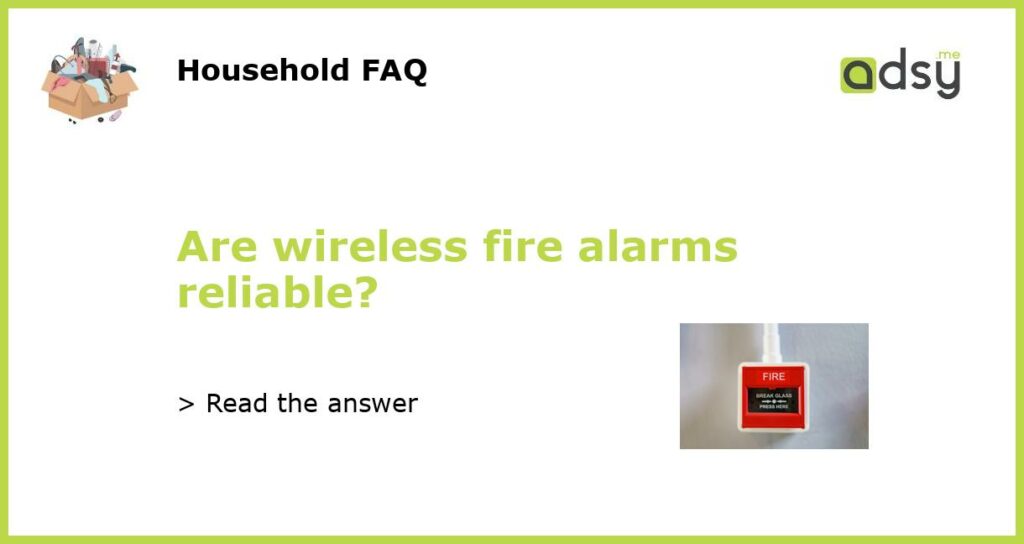Wireless fire alarms: A convenient solution?
Wireless technology has undeniably facilitated our daily lives in innumerable ways. From Wi-Fi to Bluetooth, wireless connectivity is ubiquitous in our homes. In the realm of home safety, wireless fire alarms are becoming increasingly popular. These devices sound an alarm when they detect smoke or heat, and they communicate with each other without the need for wiring. While wireless fire alarms are convenient, the question that arises is whether they are reliable.
The reliability of wireless fire alarms: What the experts say
The National Fire Protection Association (NFPA) recommends that all homes have smoke alarms, and it has specific guidelines for their installation. According to the NFPA, interconnected smoke alarms, whether wired or wireless, are more effective in alerting occupants to a fire than standalone alarms. Interconnected wireless smoke alarms are generally considered reliable, as they use radiofrequency to communicate and do not interfere with other wireless devices or networks. However, it is essential to ensure that the batteries are regularly replaced and that the alarms are tested periodically.
The limitations of wireless fire alarms
While wireless fire alarms have their advantages, there are also some limitations to consider. One potential problem with these devices is that they may not work in areas with poor radiofrequency communication or where the wireless signal is weak. Additionally, wireless fire alarms may be vulnerable to hacking or interference from other wireless devices, which could compromise their effectiveness. Furthermore, unlike wired alarms, wireless alarms cannot be connected to an alarm system monitored by a central monitoring station.
Factors to consider when choosing a fire alarm system
When selecting a fire alarm system, several factors should be taken into account, including the size and layout of the property, the number of occupants, and the intended use of the building. Property owners should also consider their budget and any legal requirements or regulations regarding fire safety. Professional installation and regular maintenance should also be factored in, as inadequate installation or maintenance can compromise the effectiveness of the alarms.
Wireless fire alarms are reliable with proper installation and upkeep
While wireless fire alarms may have some limitations, they can be reliable if installed and maintained correctly. Interconnected wireless smoke alarms are an effective way to alert occupants to the presence of a fire, and they offer the convenience of not requiring wiring. However, it is essential to ensure that the batteries are changed regularly, the devices are tested periodically, and the system is installed by a professional. Ultimately, the choice of a fire alarm system will depend on several factors, and property owners should weigh the pros and cons of each option before making a decision.






